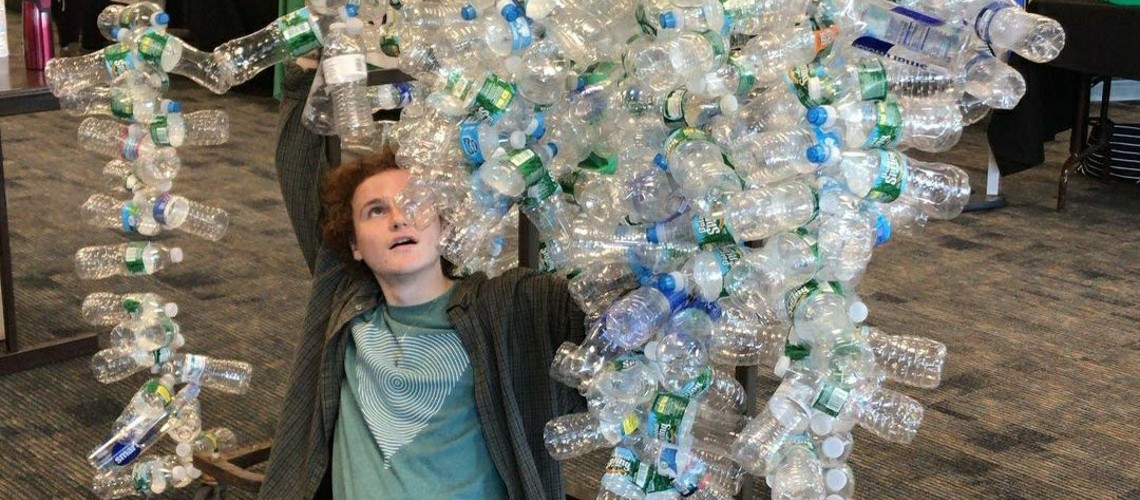A Zero Waste mentality is all about reframing perspective. Does anything really need to be wasted, or can everything be reused in some way? Can we redesign products and processes with each item’s next life in mind?
USM has won eight awards from the United States Environmental Protection Agency in the last 10 years for its waste reduction programs.
In the University’s Strategic Sustainability Plan, it aims to reduce the creation of waste from its students, staff and faculty by 25% by the year 2025 and is well on its way with a 19% reduction. It also aims to increase waste diversion to 70% by 2025, meaning that 70% of the material will be recycled in some way. Currently, most non-recycled material that leaves USM is burned by Eco-Maine to create electricity. Although this is better than the material ending up in the landfill, USM is always striving to make sure every pound of waste goes to the best possible second life once it leaves campus.
What is USM doing to strive for Zero-waste?
Reduce & Reuse:
- Every year USM staff collect reusable items that students leave behind in the residence halls through a program called Mindful Moveout. Thousands of pounds of office supplies, household items, and clothes are collected and donated.
- The best items are held onto and given out to incoming students in the Fall to help students avoid purchasing new things.
- The items are also used to stock a Freestore on the Gorham campus. This Freestore is open to students, staff and faculty throughout the academic year.
- USM dining donates uneaten food to shelters and pantries whenever it can, including to USM’s own food pantries on the Portland and Gorham campuses.
Recycle:
- USM recycles plastics, paper, aluminum, tin, steel, bottles, wood, electronic waste and many other products with Eco-Maine and Northcoast.
- USM also collects around 100 tons of food scraps per year, which are turned into rich compost by Garbage to Garden.
- USM collects liquids through liquid bins at most major waste stations on campus, rather than depositing liquids into the trash.
Tiny Trash:
- Trash is a dirty word because it means something isn’t useful anymore. So we designed the Tiny Trash program to remind people that what they deem “trash” should be a tiny amount of what they are throwing away. So, we ask staff and faculty to trade out their five-gallon trash bins in their offices for tiny trash bins the size of yogurt containers.
- These desk-top bins barely hold anything, reminding people that most items are actually recyclable (so we give them a large recycling bin). And, if they want to treat something like trash, then their bin will fill up fast and they will frequently have to walk it out into the hallway to dump it into a larger bin. The regional EPA Office in Boston liked this idea so much, they decided to model their program after us.
Questions about Waste?
For current USM students, staff or faculty, visit the My USM Portal’s facilities management site.
For the general public, please reach out to Steve Sweeney, Resource Recovery Supervisor at steven.sweeney@maine.edu or 207-780-4658.


